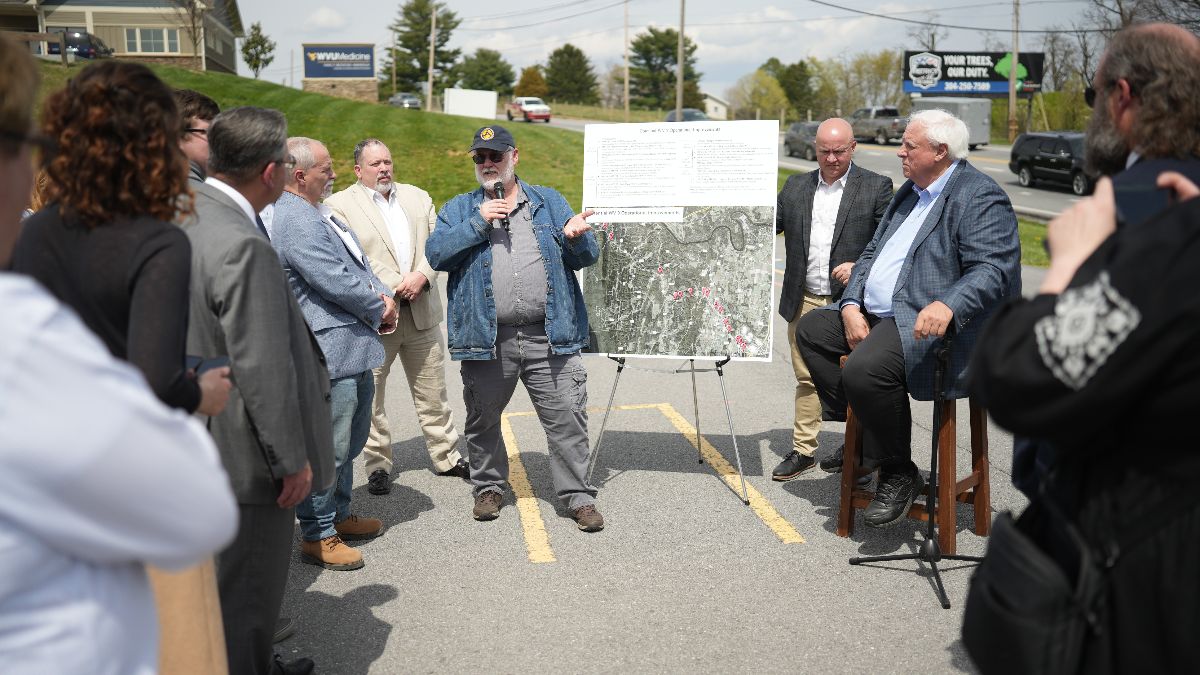Gov. Jim Justice said he is open to a special legislative session later this year to address the state budget.
Gov. Jim Justice said he is open to a special legislative session later this year to address the state budget.
Last week, legislators were notified of a potential $465 million federal “clawback” of COVID-19 era funding regarding the state’s spending on education. Legislators like the House Finance Committee chairman, Vernon Criss, R-Wood, said the late notice has required adjustments and delays to the state’s proposed budget.
At his regular briefing Wednesday, Justice was open to the idea of a May session to address further funding but was confident that lawmakers could pass a base budget before the close of session Saturday.
“I think I know where we’re gonna stand,” he said. “We want to encourage the Senate in regard to our pay raises and our tax cuts that we have in, helping the hungry and those things that are already kind of built into my budget and everything. But as far as our one-time spending and so on like that if we want to, if we want to come back in May and try to hash that out you know I guess it’d be fine.”
Justice said Superintendent Michele Blatt has been working on the clawback issue, as has his chief of staff, and he does not believe a clawback will happen.
“We have absolutely had discussion after discussion after discussion,” he said. “We are absolute believers that absolutely the education fed folks are not going to claw back on us at all in regard to this. But let’s just see how it all plays out and everything.”
Fish Stocking
Justice also announced an agreement had been reached with the federal government to allow the state’s trout stocking program to continue. The U.S Fish and Wildlife Service had removed certain waters from the trout stocking schedule due to concerns about endangered species.
As part of the agreement, West Virginia University will study trout feeding habits in an effort to protect the endangered candy darter, Guyandotte River crayfish and Big Sandy crayfish.
“At the end of the day, we don’t want to endanger any endangered species,” Justice said. “We don’t want to do anything that’s going to harm our environment in any way. We just want to do the right stuff.”
The agreement between the state Department of Natural Resources and Fish and Wildlife allows stocking to resume in four streams in four southern West Virginia counties. The stockings will now take place in May in Greenbrier, Nicholas, Wyoming and Mercer counties.
Update To Secretary Wriston’s Traffic Stop
For the third week in a row, Justice also addressed the traffic stop of West Virginia Department of Transportation Secretary Jimmy Wriston by Charleston Police in February.
“I just don’t get all this stuff but we have every reason to believe now that Jimmy Wriston was just set up,” Justice said. “That’s all there is to it. And from our standpoint, we’re waiting. We’re waiting on the Charleston Police Department and Kanawha County prosecutor to bring us a lot more information in regard to that.”
Wriston was not charged or cited at the time of the stop. A release from the Charleston Police the following day stated an investigation was underway, and a later update said “the person who contacted Metro Communications to report erratic driving by the vehicle involved in this incident was not a WV State Trooper.”
A later update stated that, “CPD officers were not able to find probable cause to arrest Mr. Wriston based on the fact that Mr. Wriston passed two field sobriety tests that were conducted.”
The update does note that an “odor of alcohol” was indicated by a preliminary breath test, “however, CPD Officers on the scene believed that the test was inconclusive and inconsistent with other tests being performed that Mr. Wriston passed.”
The Charleston Police Department has opened a criminal investigation into the person who called 911 to report the erratic driving “to determine if the information they provided CPD Officers was accurate and truthful.”
